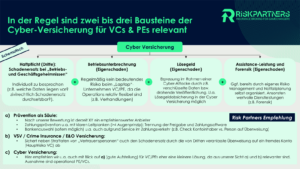
Prospectus liability insurance (POSI): Risk Partners publishes for you
Risk Partners on Going Public and the capital market blog on prospectus liability insurance In recent months, we have been able to share our expertise on prospectus liability insurance with a wide audience on two renowned platforms. Here is an overview: Kapitalmarkt.blog In the article "POSI insurance - The protective vest on the capital market", we explain why prospectus liability insurance is an indispensable tool for companies becoming active on the capital market. The article shows in a practical way how such insurance not only minimizes liability risks, but also strengthens investor confidence. GoingPublic Magazine In

